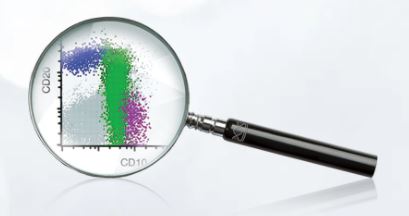- Your cart is empty
- Continue Shopping
Allosteric SHP2 Inhibitor, IACS-13909, Overcomes EGFR-Dependent and EGFR-Independent Resistance Mechanisms toward Osimertinib
- Home
- Publication
- Allosteric SHP2 Inhibitor, IACS-13909, Overcomes EGFR-Dependent and EGFR-Independent Resistance Mechanisms toward Osimertinib

Allosteric SHP2 Inhibitor, IACS-13909, Overcomes EGFR-Dependent and EGFR-Independent Resistance Mechanisms toward Osimertinib
- elsbizadmin404
- Publication
- Reading Time: 2 minutes
[vc_row][vc_column][vc_column_text]
Abstract
Src homology 2 domain-containing phosphatase (SHP2) is a phosphatase that mediates signaling downstream of multiple receptor tyrosine kinases (RTK) and is required for full activation of the MAPK pathway. SHP2 inhibition has demonstrated tumor growth inhibition in RTK-activated cancers in preclinical studies. The long-term effectiveness of tyrosine kinase inhibitors such as the EGFR inhibitor (EGFRi), osimertinib, in non–small cell lung cancer (NSCLC) is limited by acquired resistance. Multiple clinically identified mechanisms underlie resistance to osimertinib, including mutations in EGFR that preclude drug binding as well as EGFR-independent activation of the MAPK pathway through alternate RTK (RTK-bypass). It has also been noted that frequently a tumor from a single patient harbors more than one resistance mechanism, and the plasticity between multiple resistance mechanisms could restrict the effectiveness of therapies targeting a single node of the oncogenic signaling network. Here, we report the discovery of IACS-13909, a specific and potent allosteric inhibitor of SHP2, that suppresses signaling through the MAPK pathway. IACS-13909 potently impeded proliferation of tumors harboring a broad spectrum of activated RTKs as the oncogenic driver. In EGFR-mutant osimertinib-resistant NSCLC models with EGFR-dependent and EGFR-independent resistance mechanisms, IACS-13909, administered as a single agent or in combination with osimertinib, potently suppressed tumor cell proliferation in vitro and caused tumor regression in vivo. Together, our findings provide preclinical evidence for using a SHP2 inhibitor as a therapeutic strategy in acquired EGFRi-resistant NSCLC.
Significance: These findings highlight the discovery of IACS-13909 as a potent, selective inhibitor of SHP2 with drug-like properties, and targeting SHP2 may serve as a therapeutic strategy to overcome tumor resistance to osimertinib.
[/vc_column_text][vc_column_text]
Learn more:
In this study, the HCC827-ER1 cells that harbor MET amplification , was used to help with the discovery of IACS-13909, a specific and potent allosteric inhibitor of SHP2, that suppresses signaling through the MAPK pathway.
Learn more about Crownbio’s Cell Line Derived Xenograft Model service or check out more of Crownbio’s services:
- Inflammation
- Biomarker Assay
- Patient-Derived Xenograft
- Syngeneic Tumor models
- Tumor organoids
- Cell Line Panels & Omniscreen
DOI:
10.1158/0008-5472.CAN-20-1634[/vc_column_text][/vc_column][/vc_row][vc_row][vc_column][vc_column_text css=”.vc_custom_1619679665053{margin-bottom: 0px !important;}”]
RELATED SERVICES
CELL LINE DERIVED XENOGRAFT MODELS
[/vc_column_text][vc_separator color=”custom” border_width=”2″ accent_color=”#004a80″][/vc_column][/vc_row]
CONTACT

QUESTIONS IN YOUR MIND?
Connect With Our Technical Specialist.

KNOW WHAT YOU WANT?
Request For A Quotaiton
OTHER BLOGS YOU MIGHT LIKE
HOW CAN WE HELP YOU? Our specialists are to help you find the best product for your application. We will be happy to help you find the right product for the job.

TALK TO A SPECIALIST
Contact our Customer Care, Sales & Scientific Assistance

EMAIL US
Consult and asked questions about our products & services

DOCUMENTATION
Documentation of Technical & Safety Data Sheet, Guides and more..
